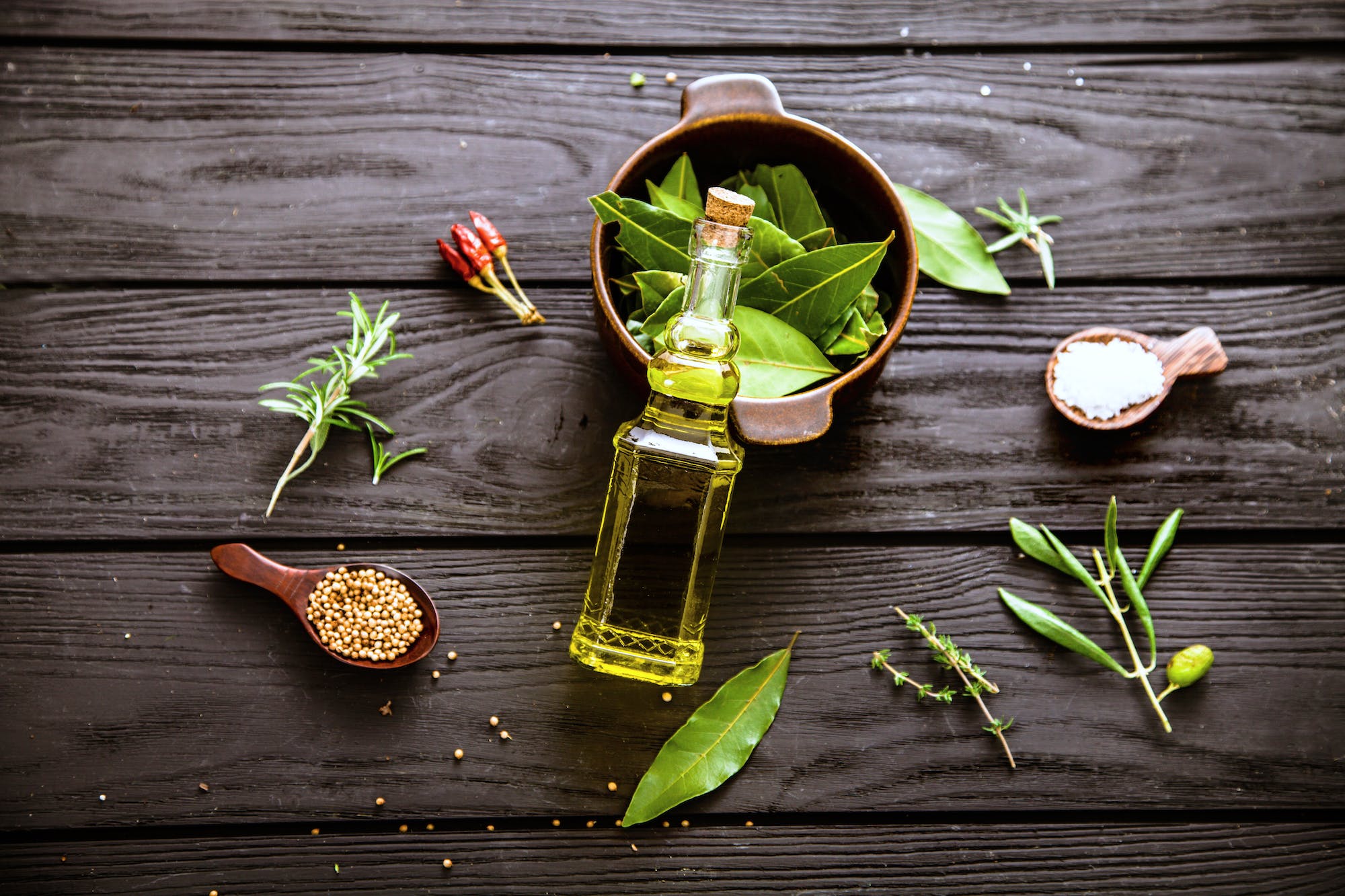Not all fats are created equal. Some can wreak havoc on cholesterol levels and increase your risk of cardiovascular disease, while others, such as monounsaturated fats, can actually lower your risk of heart disease. Extra virgin olive oil contains a relatively large amount of monounsaturated fat, making it the go-to cooking oil in many kitchens. But should it be the only oil we use?
In a small 2015 study, Francesco Violi from the Sapienza University of Rome compared the blood sugar and cholesterol levels of 25 individuals before and after eating a Mediterranean-style meal. One dish had 10 grams of extra virgin olive oil added in while the other dish contained 10 grams of corn oil. Violi and his colleagues found that while blood sugar rose in both occasions, the levels increased at a smaller amount after eating a meal that contained extra virgin olive oil compared to one that included corn oil.
Violi’s results, however, weren’t consistent with other research. Some larger studies, especially those that spanned over longer periods of time, showed the opposite outcome. They suggest that corn oil is better at lowering blood sugar and cholesterol levels than olive oil is and that it’s also effective for improving blood pressure.
In light of these studies, how do you decide whether to use extra virgin olive oil or corn oil? Nutritionists recommend a diet that contains a variety of different foods, including different oils. A kitchen that uses a variety of oils is a healthier kitchen than a kitchen that uses one type of oil for everything.
Corn oil is a polyunsaturated fat with some monounsaturated properties that offer health benefits. The worst thing we can do is to exclude it from our diets altogether. The next worst thing is having it as our only source of fat. If we use corn oil in moderation in a diet that’s full of fiber and antioxidant-rich foods, we can reap the benefits of a balanced meal.
Extra virgin olive oil, on the other hand, is a monounsaturated fat that provides us with health benefits such as promoting heart health and protecting our cells from damage. Plus, it’s great for skin health. Like corn oil, however, olive oil is still a fat and should be consumed in moderation. Both monounsaturated and polyunsaturated fats are still healthier options than saturated fats.
According to the American Heart Association, eating foods that contain saturated fats raises the cholesterol levels in your blood. High levels of LDL cholesterol in your blood increases your risk for heart disease and stroke. Saturated fats occur naturally in many foods, mainly in meat and dairy products such as the following:
- Fatty beef
- Lamb
- Pork
- Poultry with skin
- Lard and cream
- Butter
- Cheese
- Other dairy products made from whole or reduced-fat milk.
Baked goods and fried foods contain high levels of saturated fat, as well. Some plant-based oils, such as palm oil, palm kernel oil, and coconut oil, also contain saturated fats but no cholesterol.
The American Heart Association recommends keeping the consumption of saturated fat to 5 to 6 percent of your daily caloric intake. For example, if you need about 2,000 calories a day, no more than 120 of that should come from saturated fats. That’s roughly 13 grams of saturated fat in a day. Saturated fats play a role in our daily health, though we highly recommend limiting intake. Saturated fats have been shown to protect the liver from alcohol and medications, and it also plays a role in your immune health, since myristic and lauric acid found in saturated fats recognize and destroy foreign invaders like virus and bacteria.
When adding fats to your diet, it’s best to opt for a combination of monounsaturated and polyunsaturated fats while still being mindful of calories and serving sizes. Enjoy meals that are balanced in carbohydrates, lean protein, and fiber while changing your sources of healthy fats on a regular basis. Don’t limit yourself and your dishes by using just extra virgin olive oil or just corn oil – mix it up and enjoy a healthy variety!
Nutritional information
Recipe: Creamy Green Strawberry Dream Serving in this recipe:1
- Calories: 236.6
- Total Fat: 3.6 g 5.5%
- Saturated Fat: 0.4 g 1.9%
- Cholesterol: 0 mg 0%
- Sodium: 358.7 mg 14.9%
- Total Carbs: 45.7 g 15.2%
- Dietary Fiber: 9.9 g 39.4%
- Sugar: 22.1 g
- Protein: 8.1 g 16.2%
- Vitamin A: 481.9% Vitamin C: 244.1%
- Calcium: 68.5% Iron: 26.1%
* Percent Daily Values are based on a 2,000 calorie diet. Your daily values may be higher or lower depending on your calorie needs.




























